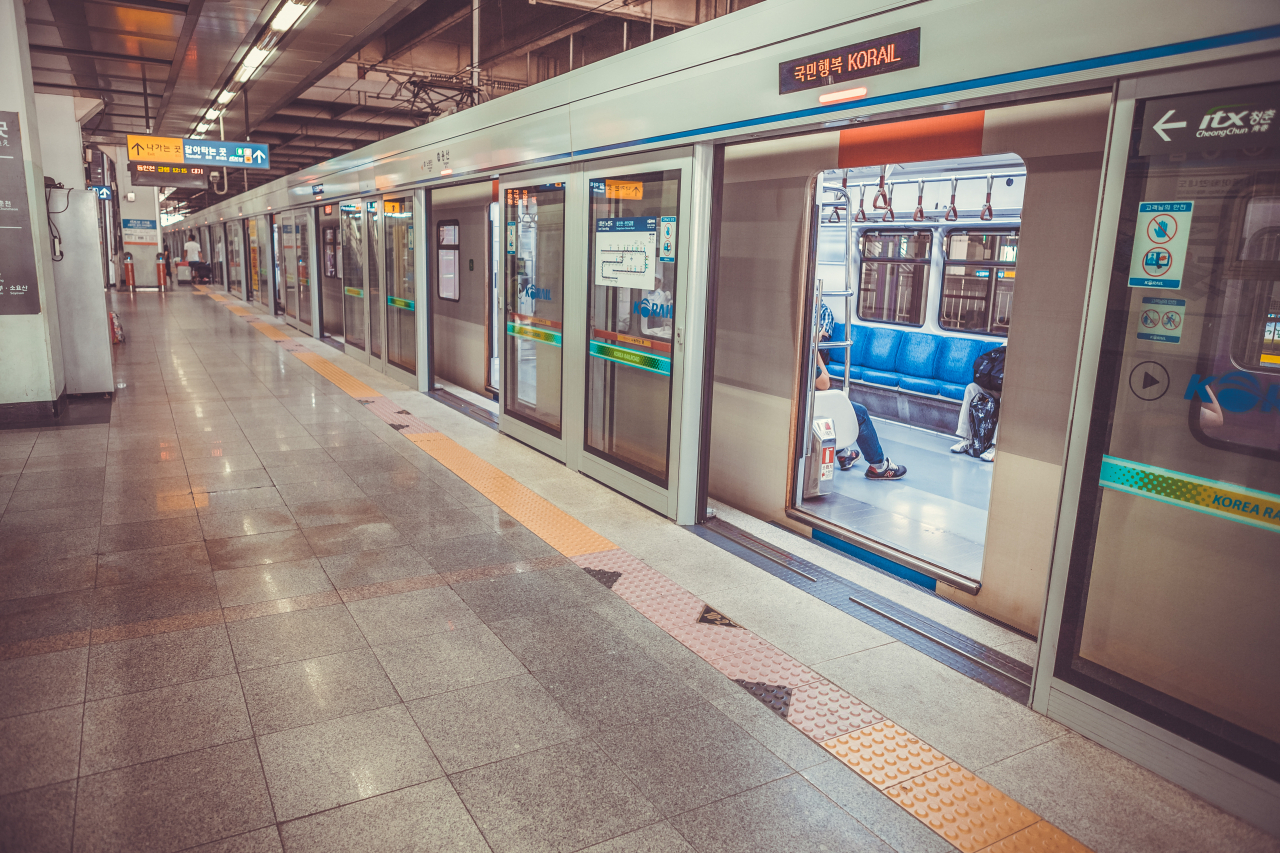A 37-year-old woman accused of injuring three people with a knife on a subway told police that she did so because someone called her “ajumma,” police said Saturday.
The accused, whose identity was withheld, is charged with injuring two women in her 60s and a man in his 50s inside a subway train headed to Jukjeon Station in the city of Yongin, Gyeonggi Province.
According to the subway police, the accused was speaking on the phone when one of the two women asked her to lower her voice, calling her "ajumma," which she said offended her.
Although the word, "ajumma," is a casual way of referring to a middle-aged woman who is unrelated to the speaker -- coming from the more polite word, "ajumeoni" -- it has grown to have a negative connotation over the years among Koreans.
One of the victims underwent surgery, although none of the injuries were fatal.

Officials have requested an arrest warrant for the accused based on the charge of "special violence" inflicted on another. Similar to aggravated assault, this charge can be made when an injury has been inflicted via a deadly weapon or collective force, and is punishable by 1-10 years in prison.
Carrying a weapon also violates Article 42 of the Railroad Safety Act, although the officials did not request charges for this specific offense.
Public use of the word, "ajumma," has led to controversies in the past.
In 2021, then Seoul mayoral candidate Ahn Cheol-soo -- of the now-disbanded People's Party -- came under fire when referring to his opponent, Park Young-sun of the Democratic Party of Korea, as an “ajumma who has an apartment in Tokyo.” And in 2019, a local court upheld the Army's decision to suspend a colonel, saying that his references to female subordinates as "ajumma" had derogatory implications.
The implications and stigmatization of "ajumma" were covered in detail by The Korea Herald in “[What should I call you?] No one wants to be called ‘ajumma.'”



















![[Today’s K-pop] Treasure to publish magazine for debut anniversary](http://res.heraldm.com/phpwas/restmb_idxmake.php?idx=642&simg=/content/image/2024/07/26/20240726050551_0.jpg&u=)